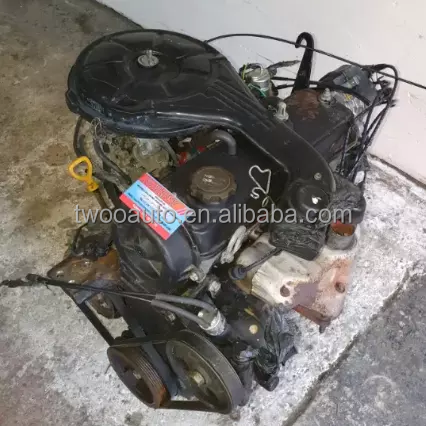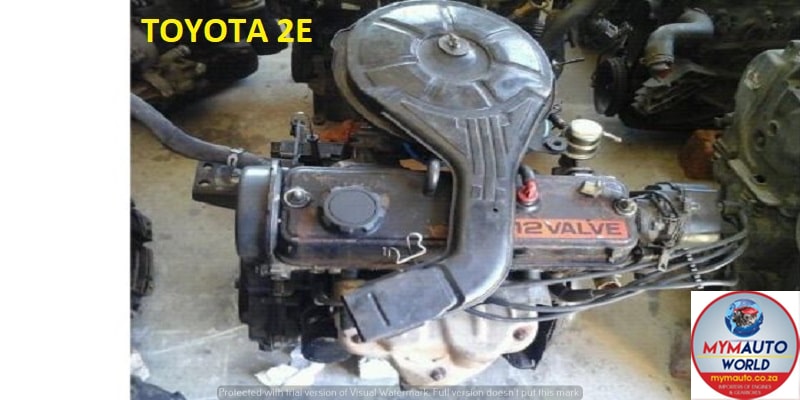Discover the current Trends in Engine Innovation With Tazz
In the rapidly evolving landscape of auto modern technology, Tazz stands at the leading edge, highlighting considerable advancements in engine systems that focus on both technology and sustainability. From crossbreed engines that optimize fuel performance to the introduction of hydrogen fuel cells, the trends forming contemporary powertrains are not only boosting performance but additionally attending to vital environmental obstacles.
Hybrid Engine Innovations
Hybrid engine innovations represent an essential shift in automotive modern technology, integrating the advantages of interior burning engines with electrical propulsion systems. This integration not just improves fuel effectiveness but additionally decreases exhausts, meeting significantly strict ecological policies. By utilizing both power resources, hybrid engines can optimize efficiency, delivering power when needed while preserving fuel throughout less demanding motoring conditions.
Current advancements in hybrid modern technology include renovations in battery efficiency and regenerative braking systems. These advancements permit better energy healing throughout deceleration, which can be redirected to help in velocity or power auxiliary systems. Suppliers are focusing on lightweight materials and small layouts to optimize the performance of hybrid powertrains.
The development of plug-in hybrids has likewise broadened the marketplace, making it possible for vehicle drivers to bill their cars utilizing conventional electric outlets. This attribute usually enables significant all-electric range, further decreasing dependence on conventional fuels. tazz. As the automobile market remains to develop, hybrid engine technologies are expected to play an important function in connecting the space between conventional vehicles and fully electrical versions, supplying a transitional option that accommodates diverse consumer demands and choices
Advancements in Electric Powertrains
The automobile landscape is quickly progressing, with electric powertrains becoming a leading pressure in lasting transport. Advancements in electric lorry (EV) modern technology are dramatically improving customer, performance, and effectiveness experience. Key technologies include improvements in battery chemistry, which have actually enhanced power density, reduced billing times, and extended overall battery life.
Solid-state batteries, for instance, promise to change the market by providing greater safety and efficiency compared to typical lithium-ion cells. Moreover, developments in regenerative stopping systems are making it possible for lorries to recuperate energy throughout slowdown, adding to general performance.
In enhancement to battery technology, electric motor styles are coming to be a lot more sophisticated. Advancements such as incorporated motors and advanced thermal administration systems are aiding to maximize power delivery and decrease weight, ultimately enhancing automobile characteristics.

Collectively, these advancements highlight the commitment to transition towards cleaner, more reliable transport options, placing electric powertrains at the forefront of automobile development.
The Rise of Hydrogen Fuel Cells
Significantly, hydrogen gas cells are getting traction as a viable choice to typical interior combustion engines and battery electric vehicles. This modern technology uses the chemical power stored in hydrogen, transforming it right into electrical power through an electrochemical response with oxygen. The main byproduct of this procedure is water, making hydrogen gas cells an ecologically friendly alternative with no emissions at the tailpipe.

Automakers are significantly purchasing hydrogen fuel cell technology, acknowledging its possibility for long-range applications and fast refueling capabilities that equal standard gas. Furthermore, industries such as durable transportation content and public transportation are particularly well-suited for hydrogen fuel cells, where battery electrical remedies may fall short due to weight and range restrictions.
As study and investment continue to expand, hydrogen fuel cells are poised to play a significant role in the future landscape of clean transportation and energy solutions.
Enhancements in Internal Combustion Engines
Technologies in interior combustion engine (ICE) modern technology are changing conventional vehicles to fulfill modern-day environmental criteria and efficiency expectations. Straight fuel shot, for instance, permits for much better atomization of fuel, leading to even more complete burning and improved power outcome.
In addition, turbocharging has actually gained prestige, allowing smaller sized engines to deliver greater performance without the weight of bigger engines - tazz. This technology not just increases performance however also adds to lower gas consumption. Variable valve timing systems are additionally being fine-tuned, making it possible for engines to adapt to numerous driving conditions for enhanced torque and responsiveness
Moreover, the usage of lightweight products in engine construction is ending up being basic, additional enhancing fuel performance by reducing general lorry weight. Engine control units (ECUs) are progressively innovative, enabling real-time adjustments that maximize performance and exhausts.
These enhancements collectively represent a pivotal shift article source in ICE modern technology, aligning with global sustainability objectives while still providing the performance motorists anticipate from their cars. As the market progresses, these renovations continue to shape the future of conventional vehicle design.
Future Fads in Engine Efficiency
Considerable innovations in engine efficiency are anticipated as producers focus on integrating innovative modern technologies to fulfill rigorous ecological laws and customer needs. The change towards electrification, hybrid systems, and alternative fuels is reshaping the automotive landscape, driving innovations that enhance fuel economy and reduce exhausts.
Among the vital fads is the execution of advanced products and making methods. High-strength alloys and lightweight composites add to reduced lorry weight, hence boosting general effectiveness. Additionally, the fostering of turbocharging and variable shutoff timing modern technologies enables enhanced power output from smaller sized engines, additionally improving fuel economy.

Final Thought
In conclusion, the expedition of engine technology exposes significant improvements that focus on sustainability and effectiveness. Technologies in hybrid engine systems, electrical powertrains, and hydrogen gas cells demonstrate a dedication to reducing discharges while enhancing efficiency. Furthermore, enhancements in inner combustion engines and a focus on light-weight materials contribute to general engine performance. As the vehicle sector remains to develop, these fads will certainly play an essential function in forming a cleaner and even more sustainable future for transportation.
From crossbreed engines that maximize gas performance to the emergence of hydrogen gas cells, the trends shaping contemporary powertrains are not only improving performance however likewise attending to important ecological obstacles.Crossbreed engine advancements stand for an essential change in automobile technology, combining the benefits of internal combustion engines with electrical propulsion systems.In addition, turbocharging has actually gotten importance, enabling smaller engines to deliver greater efficiency without the weight of larger engines. Additionally, the adoption of turbocharging and variable shutoff timing modern technologies enables for enhanced power outcome from smaller engines, further boosting gas economic climate.
Improvements in inner burning engines and a focus on lightweight products contribute to overall engine performance.